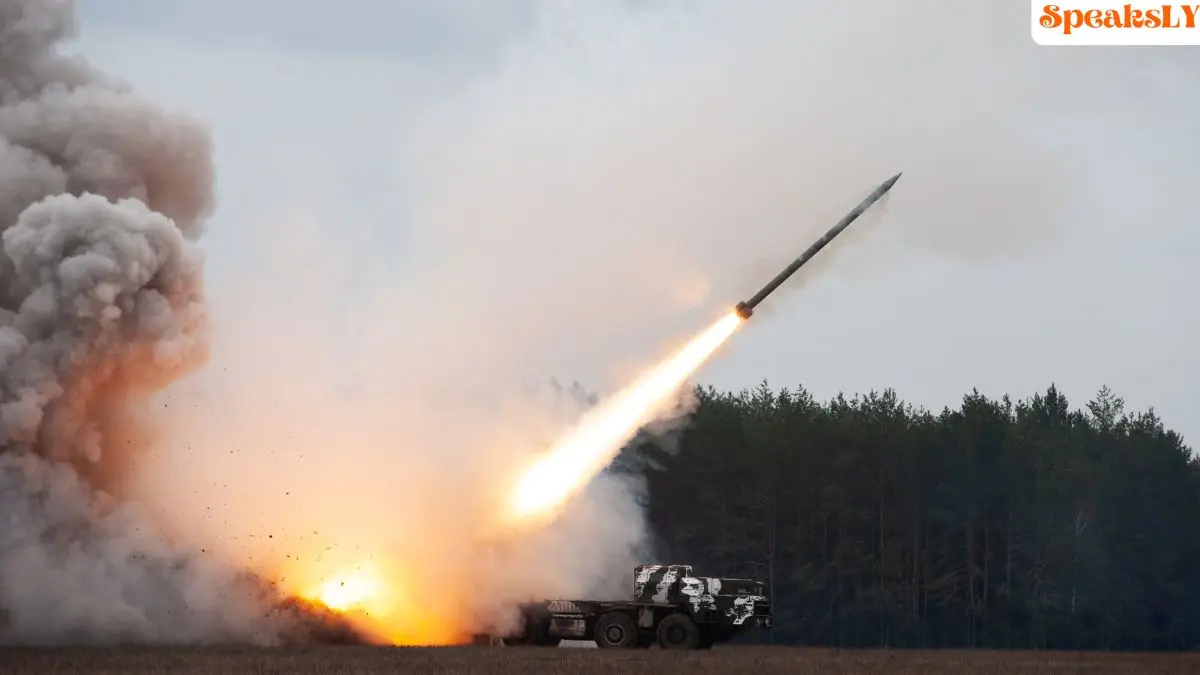North Korea Missiles: In a provocative display of military capabilities, North Korea launched an intercontinental ballistic missile (ICBM) on Thursday, October 31, 2024, marking its longest-ever recorded missile flight. The missile flew for a staggering 86 minutes before landing in waters approximately 200 kilometers west of Japan’s Hokkaido Island, according to Japanese defense officials. The test comes amid heightened tensions in the region, with North Korea’s nuclear ambitions and growing alliance with Russia raising international concerns.
The missile was fired from a lofted trajectory in Pyongyang at dawn, reaching an altitude of nearly 7,000 kilometers (4,350 miles), demonstrating that it could potentially strike more distant targets, including the U.S. mainland, with a heavier payload. Analysts believe this record-breaking flight time reflects North Korea’s continued efforts to enhance its missile technology, including payload capacity and potential reach, as it seeks greater leverage in geopolitical conflicts.
South Korea’s defense ministry previously warned that North Korea’s latest test could coincide with the upcoming U.S. presidential election, set for November 5, to capture Washington’s attention. Just hours before the launch, U.S. and South Korean defense leaders condemned North Korea’s recent decision to deploy thousands of troops to support Russia’s ongoing war in Ukraine. This deployment represents North Korea’s first active military intervention in the conflict, according to U.S. intelligence.
North Korean state media swiftly reported on the missile launch, quoting leader Kim Jong Un, who stated that the test was “an appropriate military action” reflecting Pyongyang’s intent to show its “counteraction will” to adversaries. Kim reaffirmed North Korea’s commitment to bolstering its nuclear arsenal, asserting that the nation would “never change course” in its defense strategy.
In response to the launch, South Korea announced a new round of sanctions aimed at slowing North Korea’s missile development, particularly targeting its efforts to develop solid-fuel missile technology. These missiles can be fueled in secret, giving North Korea an edge by reducing the time adversaries have to prepare defensive measures.
The United States has condemned the launch as a “flagrant violation” of United Nations Security Council resolutions, while Japan’s defense minister labeled the test “a threat to peace and security” in the region. U.S. National Security Council spokesman Sean Savett criticized North Korea’s prioritization of its weapons programs over its citizens’ well-being, calling it “an unlawful pursuit of weapons of mass destruction.”
South Korea and U.S. officials have pledged to coordinate closely on defense strategies in light of North Korea’s recent actions. The Pentagon has warned that Pyongyang’s deepening ties with Moscow could “broaden and lengthen” the conflict in Ukraine, with intelligence suggesting that North Korea is likely trading troop support for advanced Russian defense technology.
This launch underscores the intensifying arms race and security threats on the Korean Peninsula, with both the U.S. and South Korea vowing to respond decisively to North Korea’s growing arsenal and strategic alliances.






